Energy Security
- Home
- Energy Security
ENERGY SECURITY
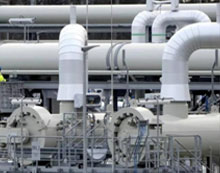
ENERGY SECURITY BASED
OPERATIONAL EXCELLENCE
____________________
ENERGY SECURITY THROUGH
RENEWABLE ENERGY AND OTHER INDUSTRY
____________________
Renewable Energy Industry
→
EV Manufacturing Industry
→
____________________
OPERATIONAL
EXCELLENCE OF RENEWABLE ENERGY INDUSTRY
Strategic Positioning in a Global Renewable Industry
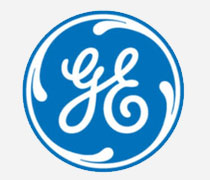
You need to operate in a context where the energy sector is undergoing a profound transformation towards sustainable practices. The demand for clean energy solutions is on the rise worldwide, with governments, businesses, and consumers recognizing the significance of reducing carbon emissions. Your operations align with this shift, positioning the company at the forefront of an industry that is vital for a sustainable future.
Positioning
Leading Capacity
You should boast the largest operational renewable energy capacity in India, with a current operational capacity of 10,000 MW. This leadership status showcases your ability to scale up renewable energy production, contributing significantly to the country’s renewable energy landscape.
Robust Growth Trajectory
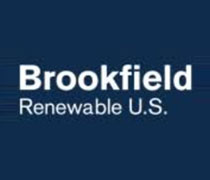
The company’s growth trajectory is characterized by its locked-in portfolio of over 20 GW, which provides a clear roadmap for near-term expansion. Your historical compound annual growth rate (CAGR) of 33% in renewable energy capacity over the last five years outpaces the overall growth in the sector, underscoring its commitment to expansion and innovation.
Strong Financial Performance

The increase in energy sales and the growth in revenue from power supply underscore your revenue-generating prowess.
Your commitment to operational excellence is evident in its high plant availability rate, which consistently exceeds 99%. This dedication to safety, security, and sustainability is achieved through the adoption of cutting-edge technologies like artificial intelligence and digitization, ensuring optimal plant performance.
ESG Leadership

You place sustainability at the core of its operations. The company’s commitment to reducing carbon footprints extends to achieving water positivity for its operating plants and embracing decarbonization initiatives. Your ESG goals encompass not only its internal operations but also extend to its suppliers, reflecting a comprehensive approach to sustainability.
Local Community Engagement
You recognize the importance of local socioeconomic development and actively supports the communities in which it operates. Through job creation, healthcare initiatives, education, and community infrastructure development, You contribute to the overall well-being of the regions it serves.
Recognition from Global Institutions

Your ESG efforts are to be acknowledged by global institutions, with accolades such as being ranked first in Asia and among the top 10 companies globally in the renewable energy sector by ISS, ESG. Its inclusion in indices like the FTSE4Good index reflects its commitment to robust governance practices.
Technology-Driven Innovation
You focus on leveraging digital and artificial intelligence-based solutions for driving innovation and performance underscores its adaptability in a rapidly evolving energy landscape. This emphasis positions the company to optimize operations and maintain a competitive edge.
Ambitious Future Targets
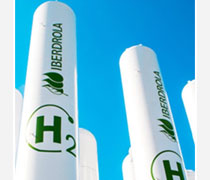
Your commitment to achieving a renewable energy capacity of 50 GW by 2030 is a testament to its vision for the future. This target signifies the company’s dedication to widespread adoption of solar, wind, solar-hybrid, and storage solutions, thereby contributing significantly to India’s renewable energy objectives.
Solving Challenges
Regulatory and Policy Risks
→
Market Volatility and Competition
→
Execution and Project Delays
→
Technological Changes and Innovation
→
Counterparty and Offtaker Risks
→
Supply Chain Disruptions
→
Environmental Risks and Climate Variability
→
Geopolitical and Social Risks
→
Regulatory and Policy Risks
The renewable energy sector is subject to regulatory changes and policy shifts that could impact project timelines, incentives, and profitability. Your growth plans have to be contingent on a favorable regulatory environment, and any unexpected shifts in government policies could affect its expansion and financial performance.
Market Volatility and Competition
The renewable energy market is becoming increasingly competitive, with new players entering the field and established companies expanding their capacities. Market volatility and aggressive competition could impact Your ability to secure projects, maintain competitive pricing, and secure market share.
Execution and Project Delays
Your ambitious growth plans depend on the timely execution of projects. Delays in obtaining permits, land acquisition, equipment availability, and other logistical challenges could lead to project delays, impacting revenue streams and financial projections.
Technological Changes and Innovation
The renewable energy sector is rapidly evolving, with advancements in technology driving efficiency improvements and cost reductions. Your needs to continuously invest in research and development to stay ahead of technological trends and ensure its projects remain competitive.
Counterparty and Offtaker Risks
Your revenue is dependent on the sale of energy to various off-takers, including government agencies and private entities. Financial distress of off-takers or delays in payments could impact Your cash flow and profitability.
Supply Chain Disruptions
The renewable energy sector relies on a complex global supply chain for equipment and components. Disruptions in the supply chain due to factors like geopolitical tensions, trade disputes, or logistical challenges could affect project timelines and costs.
Environmental Risks and Climate Variability
The impact of climate change, including extreme weather events and variability in renewable energy resources, could affect the efficiency and performance of Your projects with climate-related risks could lead to lower energy generation and potential financial losses.
Geopolitical and Social Risks
You operate in regions with varying geopolitical and social dynamics. Political instability, regulatory changes, community opposition, or social unrest could disrupt operations and hinder project development.
Your growth strategy involves leveraging its balance sheet to fund expansion. While manageable debt can fuel growth, high levels of debt could expose the company to financial stress in case of adverse market conditions or changes in interest rates.
→
GENERAL ELECTRIC | NEXTERA |
IBERDROLA | VESTAS |
CONSTELLATION | BROOKFIELD |
_____________________________
OPERATIONAL
EXCELLENCE OF ELECTRIC VEHICLES INDUSTRY
Strategic Operations of Global EV Manufacturing Industry
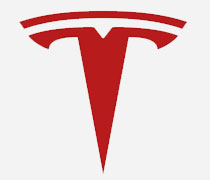
Tesla’s global expansion plans depend on the success of these practices in optimising productivity and overall performance. Also, the company’s technological innovation goals support and depend on OM performance. For example, the productivity of Tesla’s automobile manufacturing depends on operations management effectiveness, such as in inventory management and supply chain management.
Operations managers focus on how the organisation’s products influence costs, quality objectives, and resources. Tesla addresses these concerns through concurrent innovation, which involves simultaneous innovation in various parts of the automotive, battery, and solar panel business. For example, to ensure productivity in manufacturing advanced electric vehicles, the company continuously innovates its products and supply chain systems.
Tesla addresses this strategic objective through regular quality checks, quality improvement initiatives, and research on the automotive/transportation and energy solutions market. In addition, the company continues to enhance its products and processes to satisfy high standards for quality and productivity. For example, Tesla’s operations managers regularly conduct quality reviews of, and implement enhancements to manufacturing processes.
EV Manufacturing companies improve their performance by increasing their production volumes, improving their quality, raising their On-Time-In- Full delivery reliability, or removing bottlenecks from their production lines. Improving performance, and achieving a step-change in profitability, safety, customer and employee satisfaction, calls for taking an end-to-end value chain perspective. It calls for a single agenda, driven at speed, and boosted by true people engagement, skilled leadership, and changed behaviors. This creates a permanent shop-floor transformation, supported by digital technology which will help businesses to accelerate, faster.
Strategic Operations
Solving Battery technology and infrastructure challenges:
→
Solving Standardisation:
→
Solving Safety Challenges:
→
Solving Policy and regulatory challenges
→
Solving Battery Technology and
Infrastructure Challenges
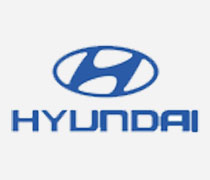
HYUNDAI ENERCELL is a highly reliable automotive battery series that satisfies car lovers from all over the world and under any circumstance.
The development and production of advanced battery technology play a crucial role in improving the performance and affordability of EVs. However, India has limited domestic manufacturing capabilities for batteries, relying mostly on imports. Building a robust battery manufacturing ecosystem and charging infrastructure are vital for overcoming these challenges.
Solving Standardization
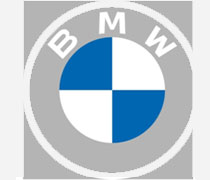
BMW is aiming to sell more standardised cars and services to boost profit margins and simplify to show variability.
The lack of standardization and interoperability between different charging networks also poses challenges for EV owners. The government, in collaboration with EV ecosystem players and auto OEMs, should prioritize establishing standardization protocols, ensuring interoperability, and promoting the development of fast-charging technologies. E.g. LEV DC for past charging 2-wheelers, not all OEMs have agreed to move to this standard. Govt. has taken the right and necessary steps in standardizing the battery swapping stations. India is taking the necessary steps but these gaps are not helping in driving the adoption to a rate which is required to meet our ambition of 2030.
Solving Safety Challenges
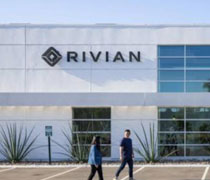
Rivian Automotive, Inc., is an American electric vehicle manufacturer and automotive technology and outdoor recreation company founded in 2009. Rivian produces an electric sport utility vehicle (SUV) and pickup truck on a “skateboard” platform that can support future vehicles or be adopted by other companies.
Safety concerns are critical in gaining consumer trust in EVs. Risks associated with battery technology, such as thermal runaways and fire incidents, need to be addressed. The government should establish stringent safety standards and regulations for EVs, charging infrastructure, and battery manufacturing. Collaboration with international organizations and research institutions can help develop comprehensive safety guidelines and establish best practices to mitigate these risks effectively.
Solving Policy and regulatory challenges
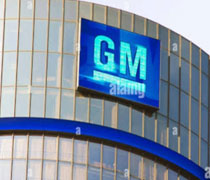
General Motors said that it could face compliance challenges under the Environmental Protection Agency’s proposed vehicle emissions rules and other state and federal regulations, as it cited requirements on electric vehicles.
The absence of a comprehensive and consistent policy framework for EVs has been a hindrance to their adoption. Clear and favorable policies, such as subsidies, tax incentives, and supportive regulations, can significantly impact market dynamics and consumer behavior. Although the Indian government has taken several steps to promote EVs, the lack of a long-term, stable policy framework has led to uncertainty among stakeholders. The recent reduction in Fame 2 subsidy may have a negative impact on the growth of EVs.
The National Electric Mobility Mission Plan (NEMMP), which sets out the target to achieve 6-7 million sales of hybrid and electric vehicles year on year from 2020 onwards by providing fiscal incentives.
The National Mission on Transformative Mobility and Battery Storage, which seeks to create a comprehensive ecosystem for the adoption of EVs and support the establishment of giga-scale battery manufacturing plants in India.
Leadership Roles in National Level

Lucid Group, Inc. is an American manufacturer of electric luxury sports cars and grand tourers headquartered in Newark, California. Lucid vehicles are designed in California and manufactured at Lucid’s factory in Arizona. The company was founded in 2007.
To become a leader in EV, a country has to:
Reduce the initial cost of owning an EV by providing subsidies, tax incentives, and financing schemes for both consumers and manufacturers.
→
Increase the choice of EVs by encouraging innovation, competition, and collaboration among Original Equipment Manufacturers (OEMs), start-ups, and other stakeholders.
→
Encourage domestic manufacturing of EVs and related components through incentives and supportive policies.
→
Raise the awareness among the public by launching campaigns, portals, and platforms to educate them about the benefits and incentives of EVs.
→
Improve the electricity distribution and supply by investing in renewable energy sources, smart grids, and energy storage systems.
→
Reduce the charging time of EVs by developing fast-charging and battery-swapping technologies and standards.
→
Expand the EV charging infrastructure by creating a network of public and private charging stations across the country with adequate quality and accessibility.
→
Enhance the service centre and repair options for EVs by training and certifying technicians, mechanics, and dealers for EV maintenance and servicing.
→
Encourage government institutions, including public transport authorities, to adopt EVs in their fleets. This would create a significant demand for EVs, stimulate the market, and demonstrate the viability of electric mobility.
→
Developing a domestic battery manufacturing ecosystem and reducing reliance on imports.
However, the EV leadership role is unfulfilled without solid business acumen and strategic thinking.
The Faster Adoption and Manufacturing of Electric Vehicles (FAME)scheme II, which provides incentives for EV manufacturers and buyers includes subsidies, tax rebates, preferential financing, and exemptions from road tax and registration fees.
→
TESLA | LUCID MOTORS |
GM | HYUNDAI |
BMW | RIVIAN |
_____________________________
Our consulting on energy security is managed by a dedicated team from Germany.
_____________________________
To improve the energy security situation, risk management is key. This process involves eliminating risks by diversifying energy sources, absorbing risks by creating a reserve margin of power generation capacities, and preparing for inevitable supply disruptions by creating strategic reserves. Three pillars of energy security are reliability, resilience, and efficiency.
Energy efficiency can bolster regional or national energy security. By reducing overall energy demand, efficiency can reduce reliance on imports of oil, gas and coal. Energy efficiency can therefore play a crucial role in ensuring both long- and short-term energy security in a cost-effective manner.
Energy is essential for industry as a source of power and as a raw material. For example, oil can be used in manufacturing chemicals, fuels, plastics and pharmaceuticals. Energy insecurity therefore decreases industrial output.
For decades, Germany has been the global pioneer in applying renewable energy and environmental technologies. However, Germany has maintained a high degree of oil and natural gas to maintain electricity supply security with oil and gas being almost exclusively imported.
Over-reliance on imported gas is the main cause of Germany’s present energy crisis, with a shortage of nuclear energy due to outages in half of the French nuclear fleet as a secondary factor that contributes to higher electricity prices.
Germany is the fifth largest economy in the world in PPP terms and Europe’s largest and leading exporter of machinery, vehicles, chemicals, and household equipment benefitted from a highly skilled labor force.
The biggest business in Germany are Volkswagen, Mercedes-Benz AG.Uniper. Allianz.Aldi Group (Nord & Sud) , Schwarz Group, BMW Group,Deutsche Telekom etc
Germany’s principal industries include machine building, automobiles, electrical engineering and electronics, chemicals, and food processing.
MCGR consulting Germany team has experience on energy security. |

MCGR Germany team serve on:
RENEWABLE ENERGY INDUSTRY |
ELECTRIC VEHICLES INDUSTRY |
BIOENERGY |
GAS INFRASTRUCTURE INDUSTRY |
GREEN HYDROGEN INDUSTRY |
LNG INDUSTRY |
SMART UTILITIES INDUSTRY |
DISTRIBUTION AND TRANSMISSION INDUSTRY |
_________________